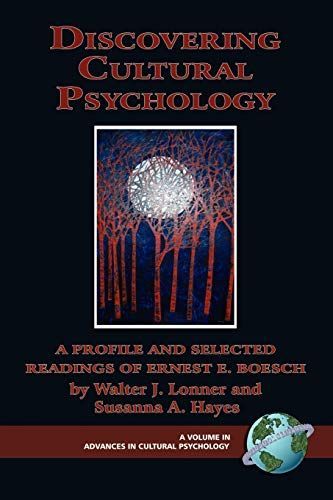
Discovering Cultural Psychology A Profile and Selected Readings of Ernest E. Boesch
This book is a landmark in contemporary cultural psychology. Ernest Boesch’s synthesis of ideas is the first comprehensive theory of culture in psychology since Wilhelm Wundt’s Völkerpsychologie of the first decades of the twentieth century. Cultural psychology of today is an attempt to advance the program of research that was charted out by Wundt—yet at times we are carefully avoiding direct recognition of such continuity. While Wundt’s experimental psychology has been hailed as the root for contemporary scientific psychology, the other side of his contribution— ethnographic analysis of folk traditions and higher psychological functions— has been largely discredited as something disconnected from the scientific realm. As an example of “soft” science—lacking the “hardness” of experimentation—it has been considered to be an esoteric hobby of the founding father of contemporary psychology. Of course that focus is profoundly wrong—the opposition “soft” versus “hard” just does not fit as a metalevel organizer of any science. Yet the rhetoric discounting the descriptive side of Wundt’s psychology is merely an act of social guidance of what psychologists do—not a way of creating knowledge.